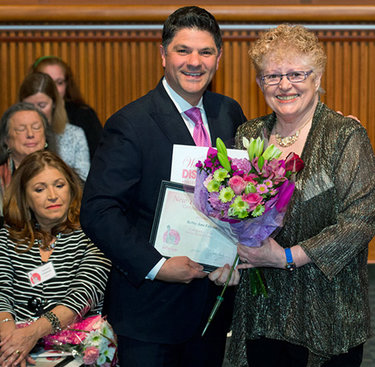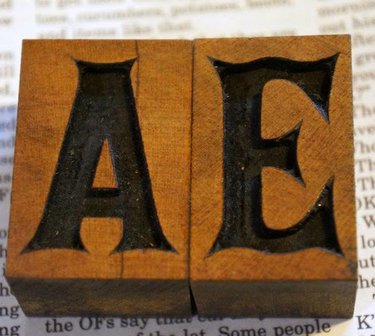Filkins recognized for volunteer work
WESTERLO — Betty Filkins celebrated her 51st anniversary with her husband on Tuesday, May 9. But that wasn’t the best thing that happened to her that day.
She was also recognized as this year’s New York State Woman of Distinction from the 46th Senate District by Senator George Amedore. But neither was this the best thing that happened that day, she said.
Filkins had just found out her sister’s cancerous tumor was shrinking and dissolving, a sign that Ruth — who had been told she needed to prepare for the end of her life — was getting better.
Filkins has organized three fundraisers for her sister over the course of her disease, raising around $10,000. The last fundraiser cleared about $3,5oo, with Filkins organizing friends, family, coworkers, and community members to donate items, money, or time for the event last month.
Filkins, who is 70, has lived in the town of Westerlo since she was 9. She graduated from Berne-Knox-Westerlo High School in 1965; married her husband, Richard; and attended the Memorial Hospital School of Nursing in Albany. She worked at resorts such as Shepard’s Farms in Westerlo or Balsam Shade in Greenville so she could spend time with her children.
“But there comes a time when you need a bit more money than that,” said Filkins. She started working with a group of cardiologists in the 1970s,became certified as a medical assistant in 1976, and then started working at Albany Medical Center in 1978. Although she retired from her full-time job five years ago, she has worked as a doctor’s assistant for 30 hours a week, after a doctor she worked with asked her to stay.
She has three plaques that hang on her wall at work, one from the American Heart Association for Outstanding Volunteer, one from the Albany Medical Center Heart Institute for Outstanding Service, and one from when she bowled a perfect 300 game at Ravena Lanes in Coeymans.
Years ago, when Filkins was shopping with her daughter one day, a woman fell down in front of her. She was having a heart attack, and Filkins didn’t know what to do. It was too late to save her by the time an ambulance had arrived, but Filkins had decided she would not be helpless again.
She learned cardiopulmonary resuscitation, and then began teaching CPR. Eventually she volunteered for the Westerlo Rescue Squad, an agency that works hand-in-hand with the Westerlo Volunteer Fire Company.
It was through the rescue squad that Filkins became the first woman to join Westerlo’s fire department in 1978.
“I knew a lot of the guys, because I was on the rescue squad,” she said, of the firemen. The ambulance was parked in the firehouse, and the rescue squad often responded to the same incident as the fire department.
Filkins decided to become a firefighter. At a meeting of the fire company, she sat in the front row and waited patiently through roll call. At the end of roll call, the fire chief asked if he had missed anyone.
Filkins responded that he had: herself — she wanted to join.
The chief asked the crowd if anyone had any objections, at which point Filkins turned around to face the firemen. No one had any objections.
Filkins said that she was comfortable joining an all-male group like the fire department. Filkins’s older brother — the eldest of five — was deaf and sent away to a special school, and so Filkins was the one who helped their father fix equipment, drive a tractor, deliver ice, and hunt. Her mother called her “Charlie Boy Betty.”
“To me, to join the fire company, it was like, ‘Why not?’” said Filkins. “What difference does it make?” she asked of gender.
Filkins eventually headed bingo nights for the fire company for five years, bringing in thousands of dollars. It was one of the reasons she was nominated Firefighter of the Year in 1983. She left the internal fire department, but is a member of the external fire department, the ladies’ auxiliary, and the fire police.
While active in raising funds for her sister as well as for the American Cancer Society — she raised over $6,000 for the group in 2014 — Filkins has become invested in causes for other family members as well.
In 1989, Filkins’s younger brother was permanently crippled by a drunk driver. In the crash, his brake pedal went through his foot, and he was told he would never walk again. He now does walk, with a cane, and Filkins tells his story for the group Remove Intoxicated Drivers, or RID, at different school districts. She also speaks on victim-impact panels, which convicted drunk drivers are requested to attend.
“I usually go first,” said Filkins, who said her story was easier for audiences to hear than those whose family members were killed.
Filkins also started sending care packages to the military overseas, after finding out from her grandson — who was serving in the United States Marine Corps — that there wasn’t a lot of reading material. She began by mailing books overseas, and then started padding these with nonperishable snacks.
Filkins is also involved with two organizations, Parents of Murdered Children and Citizens Against Homicide, due to a murder that occurred in her family. Within these organizations, she works to keep convicted murderers in prison, writing letters when they come up for parole.
Filkins’s family also drove her to join another group, the Rensselaerville Historical Society. She said her grandfather lived in the area during the 1900s, and she was interested in Rensselaerville history. At the time she joined, Westerlo Historical Society had not been created.
In the historical society, Filkins helped write the book “People Made It Happen Here,” about European settlers who first came to Rensselaerville, including her ancestors. She said she and other members spent long hours in the state library in Albany, looking for information or records. Filkins also volunteers for the Westerlo Rural Cemetery, where she looks up information about those buried there in order to reach out and obtain permission from their families to restore their tombstones.
She used to take her two daughters to historical society meetings, bingo nights, and other activities. Her one daughter now works as an emergency medical technician as Filkins once did.
It was Filkins’s husband who in fact nominated her for the state honor, although she didn’t believe it at first.
“When Senator Amedore called me about three weeks ago, I thought it was a joke,” she said.
“This is a person who is always there for whomever needs her,” reads the first line of her husband’s nomination letter. “She puts her heart and soul in things she does and overextends herself.”

